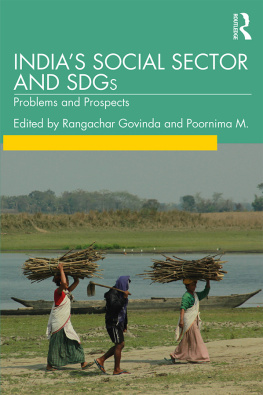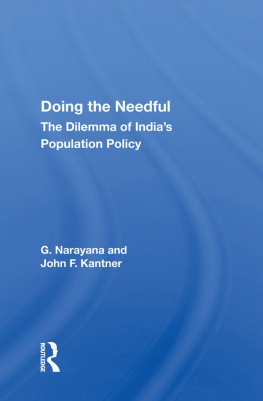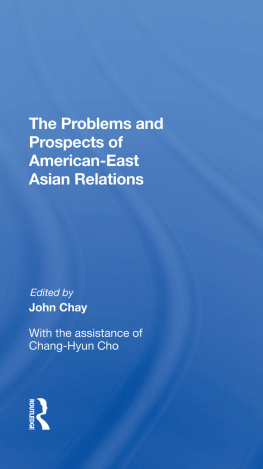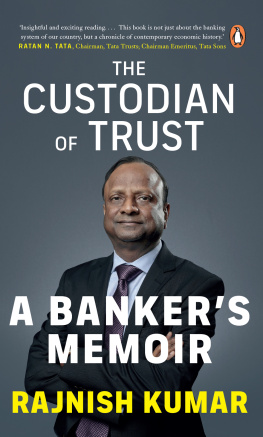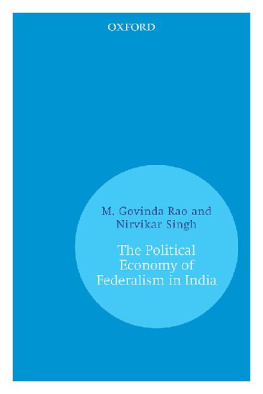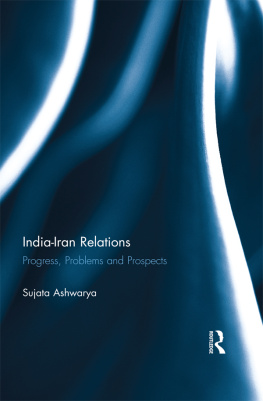Indias Social Sector and SDGs
This book explores the intersectional perspective of sustainable social development in key sectors, such as education and skill development, health and nutrition, gender concerns, food security and agriculture in India. It delves into contemporary concerns of poverty, employment and inclusive growth, and social marginalisation and inequality. The volume brings together the contributions of various stakeholders from academia, research organisations, NGOs and policymakers to address social-sector issues and sustainable development goals (SDGs) in the Indian context. It reflects on policies, strategies and performance in the context of Constitutional goals and the commitment to global SDGs and examines the character and contours of social development in the country.
Comprehensive and topical, this volume will be useful to scholars, researchers, policymakers and practitioners of development studies, political studies, sociology and development economics.
Rangachar Govinda is Distinguished Professor at the Council for Social Development and former Vice-Chancellor of the National Institute of Educational Planning and Administration, New Delhi, India. He was the J. P. Naik National Fellow for Studies in Education and Culture, Indian Council for Social Science Research. He has been a visiting professor at the Institute of Education, University of London, and the International Institute for Educational Planning, Paris. His areas of interest include primary education, decentralised management, leadership development, policy analysis, human rights and democracy.
Poornima M. is Assistant Professor at the Council for Social Development, New Delhi, India. She holds a doctorate from the Centre for the Study of Law and Governance, Jawaharlal Nehru University. She has completed about four to five research and evaluation studies and is currently heading an ICSSR-sponsored research study on Reviving Government Schools. Her research interests include governance, elementary education, public sector reforms, local government, public policies and gender issues.
Indias Social Sector and SDGs
Problems and Prospects
Edited by Rangachar Govinda and Poornima M.
First published 2020
by Routledge
2 Park Square, Milton Park, Abingdon, Oxon OX14 4RN
and by Routledge
52 Vanderbilt Avenue, New York, NY 10017
Routledge is an imprint of the Taylor & Francis Group, an informa business
2020 selection and editorial matter, Council for Social Development, New Delhi, India; individual chapters, the contributors
The right of Rangachar Govinda and Poornima M. to be identified as the authors of the editorial material, and of the authors for their individual chapters, has been asserted in accordance with sections 77 and 78 of the Copyright, Designs and Patents Act 1988.
All rights reserved. No part of this book may be reprinted or reproduced or utilised in any form or by any electronic, mechanical, or other means, now known or hereafter invented, including photocopying and recording, or in any information storage or retrieval system, without permission in writing from the publishers.
Trademark notice: Product or corporate names may be trademarks or registered trademarks, and are used only for identification and explanation without intent to infringe.
British Library Cataloguing-in-Publication Data
A catalogue record for this book is available from the British Library
Library of Congress Cataloging-in-Publication Data
Names: Govinda, R., editor. | M., Poornima, editor.
Title: Indias social sector and SDGs : problems and prospects / edited by Rangachar Govinda and Poornima M.
Identifiers: LCCN 2019019687 (print) | LCCN 2019021638 (ebook)
Subjects: LCSH: Social planningIndia. | IndiaSocial policy. | IndiaSocial conditions.
Classification: LCC HN683.5 (ebook) | LCC HN683.5 .I5398 2020 (print) | DDC 306.0954dc23
LC record available at https://lccn.loc.gov/2019019687
ISBN: 978-1-138-36151-5 (hbk)
ISBN: 978-0-367-34180-0 (pbk)
ISBN: 978-0-367-34182-4 (ebk)
Typeset in Bembo
by Apex CoVantage, LLC
Contents
PART I
Introduction
Rangachar Govinda
PART II
SDGs: process and outcome
Mitu Sengupta
PART III
Education and skill development
Preet Rustagi, Swati Dutta and Deeksha Tayal
N. V. Varghese
Santosh Mehrotra and Vinay Swarup Mehrotra
PART IV
Health, nutrition and food security
T. Sundararaman and Alok Ranjan
Imrana Qadeer
Nitin Tagade and R. S. Deshpande
Mondira Bhattacharya and Ankita Goyal
PART V
Gender equality
Suneeta Dhar
Lakshmi Lingam
PART VI
Poverty, employment and inequality
Praveen Jha
Mona Khare
Zoya Hasan
Manoranjan Mohanty
PART VII
Conclusion
Muchkund Dubey
This is an authoritative book on Indias pursuit of social development goals in the context of SDGs a collection of global goals set by the United Nations General Assembly in 2015 for the year 2030. There was an age when social and environmental issues lay largely in the local domain. In a trade-dominated economy; however, social outcomes emerge through different strands working out in a larger stage.
Significantly, this book comes with an Indian perspective. Its reasoning is therefore different from what is called the Washington Consensus, a set of policy prescriptions supported by prominent global economic institutions. It does not take the position that India was ahead of East Asian countries in the 1960s but somehow fell behind later. The fact is that South Korea was ahead of India then and continues to be so even now. However, the authors make more compelling comparisons with China with respect to various social development indicators.
The contributors to this volume constantly come across interdependencies between different development objectives and with larger socio-economic processes. Such intersections need levels of coordination, since instruments lie outside the sector. But the Planning Commission has been abolished, and the danger of isolation in silos is real, so the authors wistfully look to the Niti Aayog, which, as an institution, unfortunately does not have the powers to allocate resources or evaluate outcomes systematically.
On the issue of gender and demographics, it has been established that girls going to colleges end up marrying and consequently bearing their first child later. Nutrition and gender priorities cannot be overempathised, and insensitive nationalists need to understand that strong soldiers cannot be born of weak mothers.
The authors underline the fact that the much-heralded demographic dividend has the potential to turn into a national nightmare because frustrated youth are a powerful disruptive force if not integrated into benign socio-economic processes. Skill development is not simply a set of certificates that are to be handed out; rather, it is a certification that needs to be integrated with growth and innovation.
The authors look deeply into the crucial areas of poverty and nutrition, much to the satisfaction of this economist, who has been tirelessly campaigning over the last two decades that the Alagh Poverty Line constructed in 1979 for rural and urban areas on the basis of nutritional requirements must change to a more comprehensive view of desired outcomes. They are with Louis Dumont in the understanding that India is the only civilisation in which exploitation of man by man is justified (


